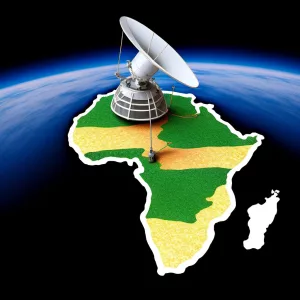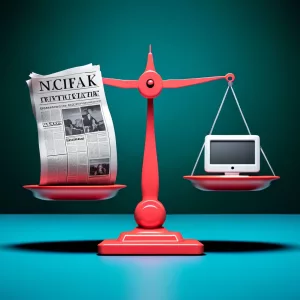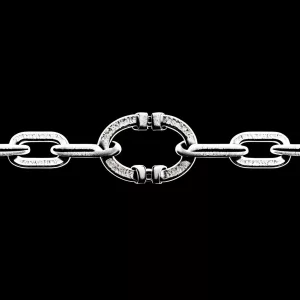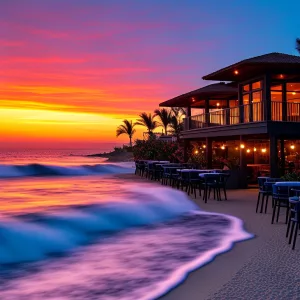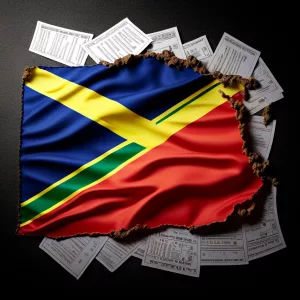Stilbaai is a hidden treasure on South Africa’s coast, full of beautiful sights and fun activities. You can swim in the calm Goukou River, enjoy sunbathing at Lappiesbaai Beach, or hike the challenging Sleeping Beauty ridge for stunning views. For those who love good food, there are tasty gin tastings at Inverroche Distillery and mouthwatering cheese at Kasselshoop. You can also explore the fascinating history at the Blombos Museum and see ancient fish traps at Skulpiesbaai Beach. Whether you’re seeking adventure or relaxation, Stilbaai has it all!
South Africa is carefully managing its relationship with the United States, focusing on respect and independence. The African National Congress (ANC) wants to show that they won’t be bullied, using established diplomatic channels instead of special delegations. They believe in maintaining dignity on the world stage, drawing from their rich history of fighting for autonomy. By sticking to their own diplomatic structures, South Africa aims to stand strong while still engaging with other countries. This strategy highlights their commitment to sovereignty and respectful dialogue in a complex global landscape.
South Africa has unexpectedly banned cannabis and hemp food products, like hemp seed oil and THCinfused treats, causing a stir in the growing cannabis industry. This sudden rule threatens jobs and economic growth, leaving many small business owners worried about their futures. Critics are outraged, especially since just a month ago, the president spoke about wanting South Africa to lead in hemp production. The ban raises serious questions about public safety and government promises, making it harder for the country to catch up with others that have embraced cannabis. As this situation unfolds, it’s vital for everyone, from business owners to policymakers, to talk and find a way that balances safety and opportunity.
South Africa is working hard to strengthen its friendship with the United States. President Ramaphosa is focused on improving trade, political talks, and cultural exchanges to build better ties. By sending key ministers to meet with US officials and appointing experienced diplomats like Ebrahim Rasool as ambassador, South Africa aims to clear up misunderstandings and promote cooperation. Despite some challenges, Ramaphosa is determined to keep the dialogue open, ensuring both countries can work together for a brighter future.
In South Africa, a heated debate is brewing over fair representation in jobs, sparked by Minister Gayton McKenzie’s job ad that favored certain racial groups. Many critics argue that this approach sidelines black candidates, while McKenzie defends his choices by highlighting the need for diverse representation in a country still healing from apartheid. His stance aims to correct past wrongs by ensuring that all races have a voice in government jobs. This struggle for balance between equity and merit showcases South Africa’s ongoing journey towards a truly inclusive society, where discussions about race and fairness remain vital for its future.
South Africa’s cricket team faced another heartwrenching defeat in the ICC semifinals, losing to New Zealand, who scored a staggering 362 runs. Despite a brave effort, the Proteas could only muster 312 runs, with David Miller shining brightly by scoring 100 runs. This loss marked their third straight exit at this stage, leaving fans with the familiar sting of disappointment. With hopes pinned on the upcoming 2027 World Cup, there’s a flicker of optimism as new talents emerge, promising a brighter future for South African cricket.
Elon Musk’s Starlink is facing a tough time in South Africa because it hasn’t applied for the required license, which involves local laws aimed at helping black South Africans gain economic power. Musk stirred up controversy by suggesting that he’s being blocked because of his race, but South African officials quickly denied this claim. They insist that Starlink can operate if it follows the rules, which require foreign companies to share ownership with local groups. The debate highlights the ongoing struggle between attracting foreign investment and promoting equality in South Africa, making it a hot topic for many.
South Africa’s Competition Commission has ordered Google to put aside between R300 million and R500 million each year to support local news media. This decision comes after a report revealed that while Google makes a huge profit from South African news, local publishers are struggling financially. The commission also wants tech giants like Meta and YouTube to change their practices, making it easier for South African stories to be seen and heard. This move aims to ensure that local voices are not lost in the sea of global media, helping to keep journalism alive and vibrant in the country.
South Africa is a treasure trove of minimoon spots, perfect for newlyweds seeking a quick escape without the hassle. From the stunning beaches of Langebaan to the magical forests of Hogsback, each place is bursting with charm and adventure. Couples can enjoy romantic dinners, thrilling hikes, or simply relax by the water, making sweet memories together. Whether it’s whale watching in Hermanus or exploring art in Clarens, every destination promises a delightful mix of nature and romance. A minimoon here is a beautiful way to celebrate love without going far!
Elon Musk’s recent move to distance himself from his South African roots shines a light on important issues about identity and governance. Born in Pretoria, he rose to fame as one of the richest people in the world, but his criticisms of South African leadership show he feels let down by his homeland’s struggles. Musk’s comments echo a broader feeling of disappointment among many South Africans, reflecting the ongoing fight for justice and equality in a country still grappling with its complex past. His journey reminds us that personal stories can connect deeply with larger global issues, urging us to rethink our views on heritage and the need for change.
Returning to South Africa is a heartfelt journey, but it comes with tricky tax challenges. Many South Africans who lived abroad don’t realize that leaving the country doesn’t free them from their tax duties. The South African Revenue Service (SARS) pays close attention to these returnees, often leading to confusion and possible audits. To dodge these bumps in the road, it’s wise for returning expats to seek help from tax experts who can guide them through the maze of regulations and ensure a smooth homecoming.
Tow truck scams are popping up more and more in South Africa, making it a dangerous situation for drivers in need of help. Many scammers pretend to work for trusted companies, taking advantage of people after accidents. To stay safe, always know your insurance’s approved towing services, verify the driver’s identity, and avoid signing anything without reading it carefully. If something feels off, ask a family member or friend for advice before making decisions. By being cautious and informed, you can protect yourself from these sneaky fraudsters.
Get ready for an amazing musical journey when Youngr comes to South Africa in April 2025! Fans can expect highenergy shows filled with livelooping beats, catchy tunes, and the vibrant sounds of GoodLuck. The concerts will take place at the stunning Cabo Beach Club in Cape Town, creating the perfect setting for an unforgettable night. Don’t miss your chance to see these incredible artists together—grab your tickets early so you can enjoy this electrifying experience!
AfriForum, a group advocating for Afrikaner rights in South Africa, is facing serious allegations of high treason, stirring up intense debates about minority rights. Their CEO, Kallie Kriel, strongly defends the organization, claiming the accusations are politically motivated and a distraction from government corruption. The controversy began with a controversial document sent to the U.S. government, which some see as a desperate plea for help, while others believe it fuels racial tensions. As the situation unfolds, Kriel believes a court case could shine a light on the government’s failures, making AfriForum’s voice louder in a complicated political landscape.
In South Africa, two cities, Johannesburg and Cape Town, tell a tale of contrasts in leadership and progress. Johannesburg struggles with problems like crime and failing services, while Cape Town shines with strong leadership and impressive infrastructure, eager to host global events like the G20 Leaders’ Summit. President Ramaphosa has criticized Johannesburg’s issues, calling for urgent change, while Cape Town’s Mayor HillLewis confidently positions his city as a reliable host, showcasing its readiness and pride. As these cities strive to improve, their rivalry could spark exciting advancements, shaping a brighter future for all South Africans.
Semigration in South Africa is the movement of people within the country, seeking better lives and opportunities. Recently, many families have been leaving Cape Town, known for its stunning views, due to rising living costs and moving to more affordable places like Johannesburg and the Eastern Cape. In Johannesburg, they find good jobs and lower housing prices, while smaller towns along the coast, like Plettenberg Bay, offer a peaceful lifestyle with a strong community feel. Families are embracing these new areas, balancing their dreams with practical living conditions and creating a vibrant tapestry of stories across the country.







